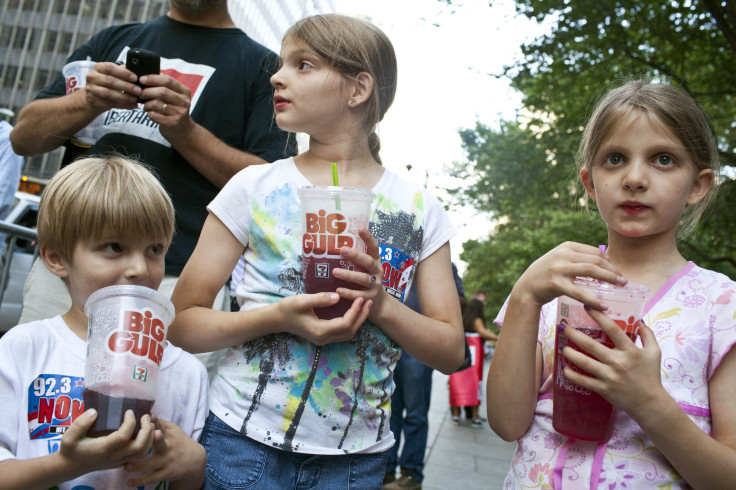Banning Large Sodas Might Cause People to Drink More, Not Less

While New York City Mayor Michael Bloomberg's proposed "soda ban" elicits scorn among city residents and languishes in the the state's Supreme Court, scientists are doing their best to figure out whether or not the ban would actually have any palpable effect.
Suprisingly, a new study shows that banning Big Gulp-size sugary drinks may actually have the opposite of the desired effect.
It's a kind of market adjustment: disallowing restaurants and food venues from selling big cups of soda may lead them to sell lots of little cups bundled together. And buyers will drink them right up.
Researchers from the University of California in San Diego, Calif. gathered participants into a variety of places like fast food, restaurants, movie theatres and stadiums and asked them to choose the products they would purchase off a menu. The menus offered popcorn, slices of pizza and sodas in three sizes. Researchers presented the "Unregulated" menu containing sodas in 16 oz., 24 oz. and 32 oz. for $1.59, $1.79 and $1.99, respectively, while the "Bundled" menus offered the sodas as one 16 oz., two 12 oz. and two 16 oz. for the same values as the individual drinks. A "No Bundled" menu only offered a 16 oz. soda for $1.59.
Results indicated that more individuals bought more ounces of soda from the "Bundled" menu than the "Unregulated" menu, which strongly goes against the expected outcome of a sugary drink ban.
"The restriction, however, would not prevent larger-sized drinks from being sold as bundles of smaller-sized drinks," the study said. "A large, 32 ounce drink could be replaced with a bundle of two, 16 ounce drinks."
Researchers also suggest that businesses could offer the smaller sized sodas in bundles, rather than as individual items, because they could earn substantially more in profit.
Last September, the New York City Board of Health accepted the ban on large soda and sugary drink sales, which removed sale of the drinks in containers larger than 16 ounces. It was an effort that was led by Mayor Michael Bloomberg to curb the consequences of obesity.
But last month, one day shy of enforcing the ban, Manhattan Supreme court Justice Milton Tingling halted the bar from taking effect citing too many loopholes and calling it "arbitrary and capricious." Soda companies and businesses commended the decision.
Since then, Mayor Bloomberg's campaign filed an appeal and promised they would continue. According to a poll by The New York Times, nearly 60 percent of residents in New York thought the ban was a bad idea.
"There may be other factors that influence drink purchasing (such as the inconvenience of carrying multiple cups). However, this research shows a potential unintended consequence that may need to be considered in future policy making," researchers stated.
The study appears in PLoS ONE Journal online.



























